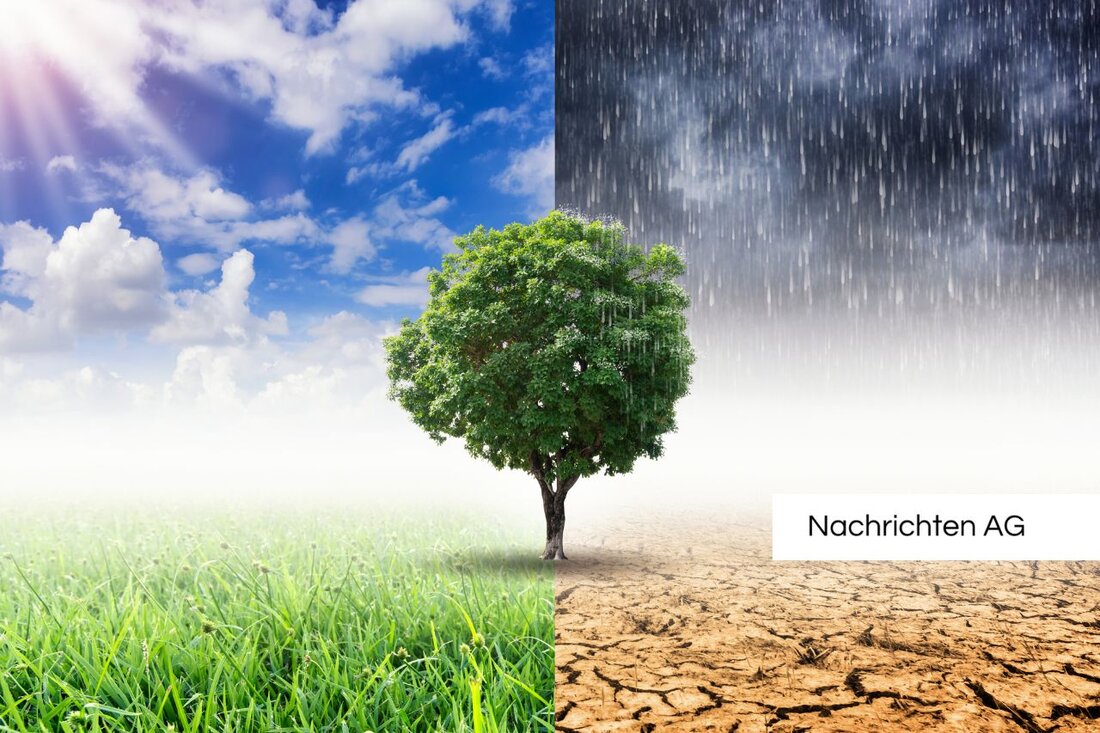Climate change: How insects show the seriousness of the situation!
Alice Claßen, professor of animal ecology at the University of Bremen, researches climate influences on insect biodiversity.

Climate change: How insects show the seriousness of the situation!
Professor Alice Claßen took on an important position in the Department of Biology/Chemistry at the University of Bremen in January 2025. Her research focuses on the effects of climate and land use change on biodiversity, particularly insects. Claßen analyzes how the biodiversity of insects changes, which factors influence the species communities and what limits there are to the adaptability of the organisms. She pays particular attention to the comparison between tropical and temperate ecosystems.
In temperate regions, some insect species show positive reactions to rising temperatures, while tropical organisms often already live at their thermal limits. Claßen's research examines how insect communities and their ecological functions suffer from the pressure of rising temperatures and the loss of refuge spaces due to more intensive agriculture. Research takes place both in tropical areas, particularly East Africa and Peru, and in temperate climates.
Research methods and objectives
Claßen uses modern genetic analysis to measure the physical characteristics of insects and conducts laboratory experiments. The aim of her work is to deeply understand the effects of global environmental change on biodiversity and at the same time to develop perspectives for action for the preservation of ecosystems. The urgency of this research is underscored by the fact that almost half of all described species on Earth are insects. Nevertheless, their diversity and biomass are decreasing, which has significant negative consequences for the ecosystems.
Before her current professorship, Claßen led the junior research group ADAPT, which investigated changes in alpine insect communities in the Berchtesgaden National Park. Her doctorate at the University of Würzburg led her to the effects of climate change and land use on pollinator communities on Kilimanjaro in Tanzania.
A global problem
The challenges Claßen faces are not isolated, but reflect the global situation. Climate change is affecting plants, animals and ecosystems worldwide, with species shifting their habitats and changing ecosystem structures. According to that Environmental Research Center (UFZ) Climate change is, after land use change, one of the most important factors for the loss of biological diversity. International agreements such as the Convention on Biological Diversity (CBD) aim to reduce negative impacts on biodiversity and promote adaptation strategies.
Projects at the UFZ investigate the effects of climate change on areas, ecosystem functions and services, including large-scale risk analyzes and experiments on the response of biodiversity to extreme climatic events. Such research is essential to derive recommendations for management and protection concepts at European and federal levels.
Ecosystems and biodiversity in focus
The far-reaching consequences of climate change on biodiversity, such as changes in temperature, precipitation patterns and the occurrence of extreme weather events, are of key importance. Habitat loss due to sea level rise and ice cap melting poses a threat, as does changing ecosystem structures due to the disappearance and addition of species. These developments have a direct impact on important ecosystem services such as insect pollination.
Areas particularly at risk are tropical rainforests and coral reefs, where biodiversity is under enormous pressure. Conservation measures to preserve biodiversity are urgently needed and should involve international cooperation and local communities. Climate change is forcing a reassessment of the adaptive capacity and vulnerability of ecosystems.
Given these challenges, Claßen's research highlights the need to strengthen the adaptive capacity of species and ecosystems to counteract the global loss of biodiversity. Their work is part of a larger global effort to address the consequences of climate change and develop sustainable solutions.
More information about the impacts of climate change on biodiversity is available in a comprehensive analysis by das-wissen.de to find.

 Suche
Suche
 Mein Konto
Mein Konto